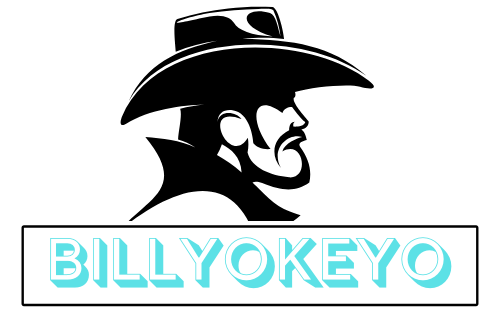Pharmacy technicians play a crucial role in healthcare, working alongside pharmacists to ensure patients receive their medications safely and efficiently. If you’re considering this rewarding career path, understanding the pharmacy tech salary landscape is essential for making informed decisions about your future.
The demand for skilled pharmacy technicians continues to grow as healthcare needs expand across the United States. These professionals serve as the backbone of pharmacy operations, handling everything from prescription processing to inventory management. While the work is meaningful, many prospective technicians want to know: what can you realistically expect to earn in this field?
This comprehensive guide explores every aspect of pharmacy technician compensation, from entry-level wages to top-tier salaries. We’ll examine the factors that influence earnings, regional differences, and actionable strategies to maximize your income potential. Whether you’re just starting your career or looking to advance in the field, this information will help you navigate the financial aspects of your pharmacy tech journey.
What is a Pharmacy Technician?
Pharmacy technicians are licensed healthcare professionals who support pharmacists in dispensing prescription medications to patients. Their responsibilities extend far beyond simply counting pills—they perform complex tasks that require attention to detail, technical knowledge, and strong communication skills.
Daily duties typically include processing prescription orders, verifying patient information, calculating dosages, and preparing medications for dispensing. Technicians also manage inventory, order supplies, handle insurance claims, and provide customer service to patients with questions about their medications. In hospital settings, they may prepare sterile compounds or work in specialized areas like chemotherapy preparation.
Most pharmacy technicians work in retail pharmacies, hospitals, long-term care facilities, or mail-order pharmacies. The work environment can be fast-paced, requiring technicians to multitask while maintaining accuracy and professionalism. Many states require formal training and certification, which has elevated the profession’s standards and earning potential.
The role demands strong mathematical skills, knowledge of pharmaceutical terminology, and familiarity with computer systems. Technicians must also understand insurance processes, drug interactions, and safety protocols. As healthcare technology advances, many technicians are taking on additional responsibilities, including medication therapy management and specialized compounding tasks.
Factors Affecting Pharmacy Technician Salary
Several key factors influence how much pharmacy technicians earn, creating significant variation in compensation across the field. Understanding these variables can help you make strategic career decisions and identify opportunities for higher pay.
Experience Level
Experience plays a major role in determining pharmacy tech salary ranges. Entry-level technicians typically start at lower wages while they develop their skills and prove their reliability. As technicians gain experience, they become more valuable to employers and can command higher salaries.
New technicians often begin with basic tasks like data entry and prescription labeling. With time, they take on more complex responsibilities such as insurance troubleshooting, compound preparation, and training new staff members. Experienced technicians may also specialize in areas like chemotherapy preparation or nuclear pharmacy, which typically offer premium pay.
The learning curve for pharmacy technicians varies, but most professionals see steady salary increases during their first five years. Those who demonstrate leadership qualities, reliability, and specialized skills often advance more quickly than their peers.
Education and Certifications
Formal education and professional certifications significantly impact earning potential. While some states allow on-the-job training, technicians with formal pharmacy tech programs often start at higher salaries and advance more quickly.
The Pharmacy Technician Certification Board (PTCB) offers the most recognized certification in the field. Certified technicians typically earn 10-15% more than their non-certified counterparts. Additional certifications in specialized areas like sterile compounding or chemotherapy preparation can further boost earnings.
Many employers prefer or require certification, viewing it as evidence of competency and commitment to the profession. Some pharmacies offer tuition reimbursement or salary increases for technicians who obtain additional credentials while employed.
Geographic Location
Location dramatically affects pharmacy tech salary expectations. Urban areas typically offer higher wages to offset increased living costs, while rural areas may have lower salaries but also lower expenses. State regulations and market demand create additional variations.
States like California, Alaska, and Washington typically offer the highest pharmacy technician wages, while southern and midwestern states often have lower salary ranges. However, cost of living adjustments make some lower-wage areas more attractive from a purchasing power perspective.
Metropolitan areas usually provide more opportunities for specialization and advancement, potentially leading to higher long-term earnings. Rural positions may offer other benefits like signing bonuses, flexible scheduling, or comprehensive benefits packages.
Work Environment
The type of pharmacy significantly influences salary levels. Hospital pharmacy technicians often earn more than retail workers due to the complexity of their duties and the critical nature of their work. Specialty pharmacies, mail-order facilities, and nuclear pharmacies typically offer premium wages.
Retail pharmacies, while numerous, often provide entry-level wages but may offer benefits like flexible scheduling, employee discounts, and advancement opportunities. Long-term care facilities fall somewhere in the middle, offering steady employment with moderate pay increases.
Federal employment, such as positions with the Veterans Administration or military hospitals, often provides excellent benefits packages that enhance the overall compensation package even if base salaries are moderate.
Salary Ranges for Pharmacy Technicians
Understanding current pharmacy tech salary ranges helps set realistic expectations and identify opportunities for growth. National data provides a baseline, but individual circumstances will influence actual earnings.
Entry-Level Salaries
New pharmacy technicians typically earn between $28,000 and $35,000 annually, depending on location and employer. Hourly wages for entry-level positions generally range from $13 to $17 per hour. These starting salaries reflect the learning period required for new technicians to become fully productive.
Entry-level technicians in high-cost areas may start closer to $18-20 per hour, while those in lower-cost regions might begin around $12-14 per hour. Many employers offer structured pay increases during the first year as new technicians demonstrate competency and reliability.
Some companies provide signing bonuses or accelerated raise schedules to attract quality candidates. Entry-level positions often include comprehensive training programs that add value beyond the immediate salary.
Median Salaries
The median pharmacy tech salary across the United States falls between $37,000 and $42,000 annually. This translates to approximately $18-20 per hour for full-time positions. These figures represent technicians with 2-5 years of experience working in standard retail or hospital settings.
Regional variations create significant differences in median wages. High-cost metropolitan areas may see median salaries reaching $45,000-50,000, while rural areas might average $32,000-38,000. These differences often correlate with local cost of living and demand for qualified technicians.
Technicians with specialty certifications or those working in specialized settings often earn above median wages. Hospital technicians, in particular, frequently exceed national averages due to their advanced skill requirements.
Top Salaries
Experienced pharmacy technicians in specialized roles or premium locations can earn $50,000-60,000 or more annually. Hourly wages for top earners may reach $25-30 per hour, particularly for those with extensive experience and multiple certifications.
Nuclear pharmacy technicians, chemotherapy specialists, and those in supervisory roles represent the highest earning potential in the field. Some technicians transition into pharmaceutical sales or regulatory roles, which can significantly increase earning potential.
Geographic hotspots like San Francisco, New York, and Seattle offer the highest salary potential, though living costs must be considered. Some rural areas with critical staffing shortages also provide premium wages to attract qualified technicians.
Benefits and Perks
Pharmacy tech compensation extends beyond base salary to include valuable benefits and perks. Many employers offer comprehensive packages that significantly enhance the total compensation value.
Health insurance represents a major benefit, with many pharmacy employers offering excellent medical, dental, and vision coverage. Retirement plans, including 401(k) matching, help technicians build long-term financial security. Paid time off, including vacation, sick days, and holidays, adds substantial value to the compensation package.
Educational benefits are common in the field, with many employers offering tuition reimbursement for continuing education or advancement programs. Some companies provide free or discounted medications for employees and their families. Flexible scheduling, especially in retail settings, can provide work-life balance benefits.
Career development programs, mentorship opportunities, and internal promotion policies create additional value for ambitious technicians. Some employers offer performance bonuses, shift differentials for evening or weekend work, and recognition programs that provide both financial and career benefits.
Career Growth and Advancement
The pharmacy technician field offers multiple pathways for career advancement and salary growth. Understanding these opportunities can help you develop a strategic career plan and maximize your earning potential over time.
Specialization represents one of the most effective ways to increase earning potential. Technicians can pursue additional training in areas like sterile compounding, chemotherapy preparation, or nuclear pharmacy. These specialties often command premium wages and provide interesting, challenging work.
Supervisory and management roles offer another advancement pathway. Lead technicians, pharmacy supervisors, and department managers typically earn significantly more than staff technicians. These positions require leadership skills and extensive experience but provide substantial salary increases.
Some technicians use their experience as a stepping stone to other healthcare careers. Pharmacy school, nursing programs, or healthcare administration represent potential career transitions that can dramatically increase earning potential.
How to Increase Your Pharmacy Technician Salary
Strategic career planning can help you maximize your pharmacy tech salary throughout your career. Several proven approaches can accelerate your earning potential and create advancement opportunities.
Obtaining professional certification should be your first priority if you haven’t already done so. The PTCB certification immediately increases your market value and opens doors to better positions. Additional specialty certifications can further boost your earning potential and make you more attractive to employers.
Pursuing continuing education demonstrates commitment to professional growth and keeps your skills current. Many employers offer tuition reimbursement or salary increases for technicians who complete additional training programs or earn associate degrees in related fields.
Networking within the pharmacy community can reveal new opportunities and provide insider information about higher-paying positions. Professional associations, online forums, and local pharmacy groups offer valuable networking opportunities.
Consider relocating to areas with higher demand or better compensation. Research pharmacy tech salary ranges in different regions and factor in cost of living differences. Sometimes a strategic move can result in significant salary increases.
Develop leadership skills and express interest in advancement opportunities within your current organization. Many employers prefer to promote from within, and demonstrating leadership potential can fast-track your career progression.
Building Your Financial Future as a Pharmacy Technician
The pharmacy technician profession offers stable employment with competitive compensation and excellent growth potential. While entry-level salaries may seem modest, the combination of job security, benefits, and advancement opportunities creates a solid foundation for financial success.
Success in maximizing your pharmacy tech salary requires strategic thinking and continuous improvement. Focus on obtaining certifications, developing specialized skills, and building strong professional relationships. Consider the total compensation package, not just base salary, when evaluating opportunities.
The healthcare industry’s continued growth ensures strong demand for qualified pharmacy technicians. Those who invest in their professional development and stay current with industry trends will find the best opportunities for career advancement and salary growth.
Your pharmacy technician career can provide both personal fulfillment and financial stability. By understanding the factors that influence compensation and taking proactive steps to enhance your qualifications, you can build a rewarding career that meets your financial goals while making a meaningful contribution to healthcare.





